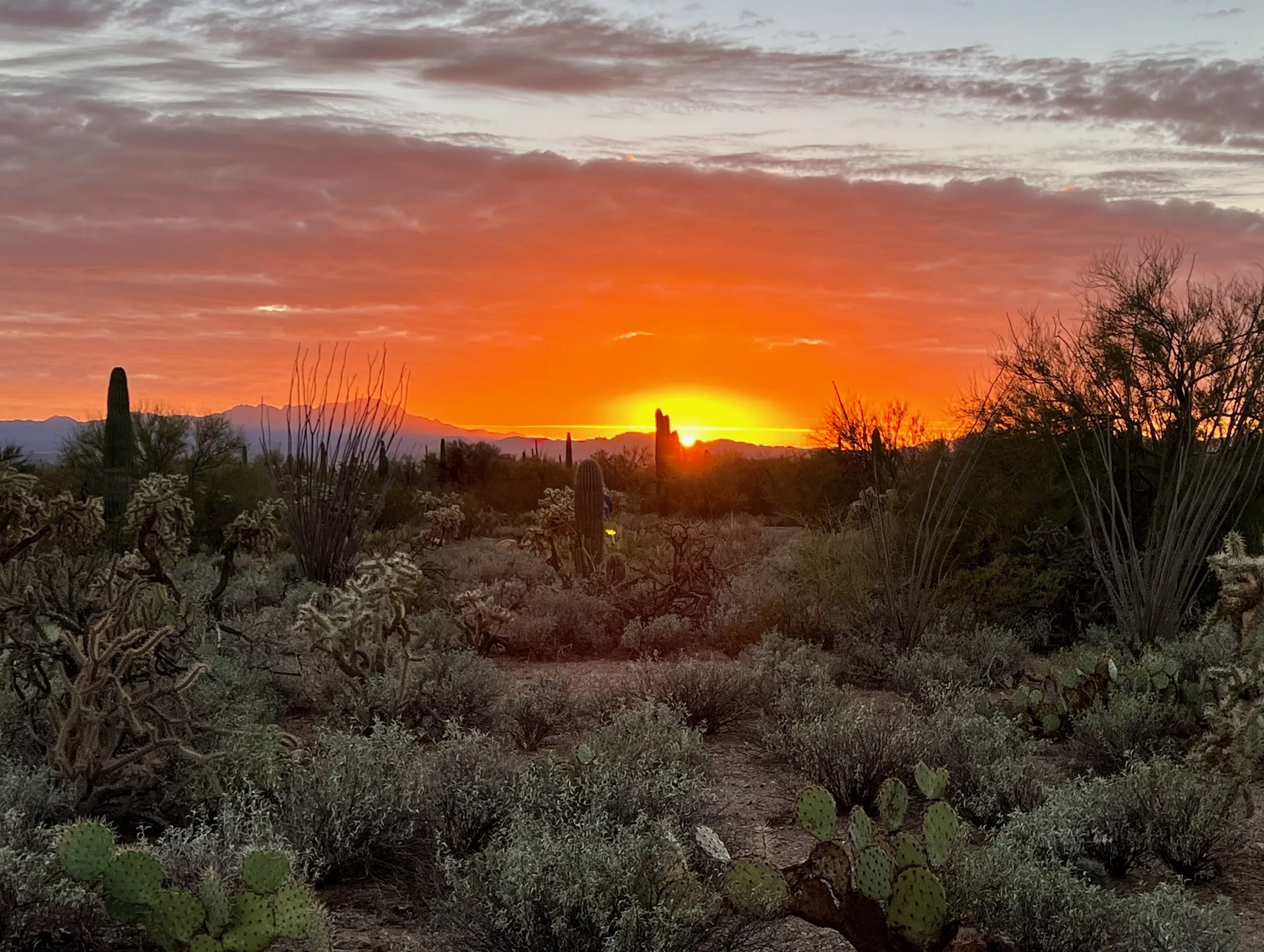Employment, Life Energy, and the Fight for Freedom
Don’t let the sun set on your life before you’ve had a chance to live.
Time is our most precious non-renewable resource. We can always earn more money, but we can never make more time. No matter what we do, we only have this one life to live, and then at the end of it, we simply vanish from existence.
We generally view a lack of time as the greatest obstacle to achieving our goals, such as Outside 365. As one reader wrote in, "My biggest obstacle is time, spending the day behind a desk and then commitments in the evening."
As I discussed in the article on memento mori, our hope to leave a lasting legacy is laughably implausible. While we can try our best to be better than average, death is the great leveler. No matter how famous or accomplished we become in this life, we'll all eventually be forgotten. We leave nothing behind us in our wake. When we die, the world keeps turning as if we never existed, as if we never even lived.
This reality shouldn't depress you—it's simply the human condition. And as such, we must make the most of this one life that we have to live.
Hopefully our lives are all long and healthy and not tragically shortened. But even at the longest end, we get maybe 90-some years to live on this planet before it all comes to an end.
How many of those 90 years have you spent already? 30? 50? How many do you think you reasonably have left to spend?
How would you like to spend the meager amount of life remaining to you? Do you want to slave away in front of a glowing computer screen, answering emails from angry customers and dealing with never-ending piles of bull shit growing on your desk?
Or do you want to spend your short life with people you care about, absorbing the incredible natural beauty of this astonishing planet that we inhabit?
If you're reading this blog, you likely agree with my core value of spending as much of my short existence experiencing and enjoying nature as possible. This is the essence of Outside 365. This is what it all springs from.
The Great Destroyer of Life Energy: Employment
Photo: Greg Heil
If there's one culprit that's responsible for consuming the vast majority of our limited hours and days of existence, it is the jobs that we work. We trade our time for money, meaning these small amounts of dollars that come into our hands represent our life energy. They represent all of the struggling and striving and sacrificing of our limited, ever-diminishing existence.
(Note: before you get too up in arms, thinking I'm entirely anti-employment, be sure to read my counterpoint article, here.)
We'll get to whether or not trading that time for money is worth it in a minute, but for now, simply consider how much of our lives we dedicate to this thing called work.
As I've written before, the average American works about 47 hours per week and commutes over 4 hours per week, for a total of roughly 52 hours. The average American works about 48 weeks per year, if you calculate out 10 vacation days and 10 bank holidays. This adds up to ~2,496 hours per year. Let's round up to an even 2,500 hours per year.
Now how many years will you work in your life?
It depends how you count it. I consider the education required to get most of these jobs—aka going to high school and then getting a university degree—to have been even more of a nightmare than the employment itself. Add on the jobs many of us worked during high school—and, in my case, middle school—and there's a whole lot of life energy being dumped into earning a few bucks an hour. With the average retirement age currently pegged at 67, let's calculate an entire lifetime of work, inclusive of college education and part-time high school jobs, as 50 working years.
Based on our calculated 2,500 hours per year x 50 years, we arrive at a total of 125,000 hours of work in an average American life.
125,000 hours. Just how many hours IS that?
125,000 hours equals 5,208 24-hour days. Divided by 365, that's equivalent to 14.26 years of time, non-stop.
Just based on the sheer amount, 125,000 hours represents an incredible amount of our life energy. But that's not all...
We spend the best hours of our lives working.
Would you rather be working or riding?
Not all of the hours that we have to live are created equal, though. One of the limitations of our human condition is the need for sleep—roughly 8 hours per day. We may hate that a full third of our limited lives must go to recovery, but without sleep, we'll die much sooner.
In my Over a Beer column, I detailed how much time in the day we have to spend on other survival essentials, such as food preparation, food consumption, and hygiene. This adds up to about 2.5 hours per day.
So if we spend at least 10.5 hours per day simply surviving and recovering, we're left with just 13.5 hours. And if we're spending 10.5 of those hours from Monday to Friday at our jobs, we have very little—just 3 hours per day—leftover during the work week in which to actually enjoy our lives.
Above and beyond the vanishingly-small number of hours, I also find it fascinating how our jobs consume the best hours of our lives. We go to work bright and early in the morning when we're awake, alert, present, and fully engaged in reality. We come back from work exhausted and worn out, with most people spending those 3 remaining free hours per day mindlessly consuming television and social media.
Then when the weekend arrives, we're so drained from running ourselves ragged during the week that most people feel the need to simply sit and recover from the week's stress. In fact, statistically, social media and television destroy more of our life energy in a given week than employment does!
The question is: What job do you choose to work?
On assignment in Whistler, British Columbia. Not a bad gig.
Ok, so we understand that the status quo is that we'll work 125,000 hours, grinding away for about 50 years of our lives. But before we even question that first assumption, the most basic question we should ask is: what job do you choose to commit those 125,000 hours to?
Because no matter what you might think, you get to choose. But some people, apparently, don't seem to realize this.
I've heard from so many people that time and jobs are the number one reason why they can't complete Outside 365. But I've set the Outside 365 benchmark very, very low (and of course, you can choose to alter it as you see fit). But at its most basic, I only require myself to walk one mile outside per day to keep the Outside 365 streak alive. That takes about 20 minutes of walking, plus time to gear up if it's cold outside... so let's call it 30 minutes.
It's a 30-minute commitment per day.
Yet I receive emails, like the one quoted above, which said, "My biggest obstacle is time, spending the day behind a desk and then commitments in the evening."
I have a serious question for you guys: what the fuck kind of jobs are you people working that won't allow you to go for a 30-minute walk during the day?
If you've been grinding in front of the computer for hours on end, your eyes are getting bleary, and your focus is diminishing, one of the best things you can do to regain focus and energy is to give yourself a short break, go outside, and move your body. In fact, going for a short 20-minute walk in nature has been proven to boost creativity and problem-solving ability.
Are you telling me that you cannot do this?
Are you telling me that if you get up from your desk, put on your coat, and head out the front door of your office building to walk down the sidewalk for 30 minutes, that you'd be fired?
I guess, in theory, it's possible that this is the case for some people. But if this is the case for you: do you realize how fucked up this is?
Do you realize that a boss or a corporation saying, "no, you can't go for a rejuvenating walk so that you come back to your job refreshed, recharged, and ready to deliver the best-quality work possible," is toxic, demeaning, and damaging?
Fight for Freedom
Find your freedom. Grand Junction, Colorado.
I realize that I have taken an unconventional career track in my own life, which has led to quite a bit of freedom in my day-to-day life. Even so, I still occasionally go into the office to work, attend corporate retreats, sit in meetings in board rooms, etc. And even still, going for a walk to clear my head would never be a problem.
If you're working in a job where going for a walk to clear your head is considered a fireable offense, or you don't have the freedom in your daily schedule to peace out for 30 minutes to walk, I think you need to seriously reconsider your career path.
The Outside 365 project is, in many ways, a small practice that helps us to think about and promote the fight for freedom in our everyday lives. Yes, both freedom and entrapment can come in many forms, but if you don't have enough flexibility and autonomy to decide that you want to go for a 30-minute walk, you have a serious fucking problem on your hands. Like, this is a drop-everything, hair-on-fire emergency that you need to fucking fix.
Working in that kind of toxic environment is going to have massive negative ramifications for your life in so many ways—not just related to your ability to get outside.
But here's the thing: you get to choose what you do for work, and you get to choose where you work. You are not trapped. You are not stuck. You can always make a change and make a move.
If you're stuck in a work environment this controlling or this toxic, you need to fight for your freedom and get the hell out of there. There are plenty of employers out there who will respect your humanity enough to let you go for a goddamned walk in the middle of the day.
Go work for one of those employers instead.
Up Next: I critique the entire assertion that your job is the reason that you can't go outside and be active. In this article, I gave the benefit of the doubt to the argument that your job is the problem... but in part 2, I take the other side of the argument entirely.





